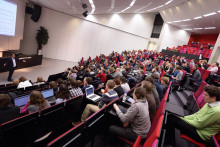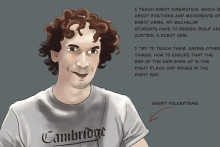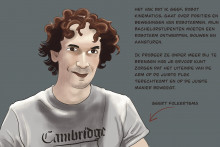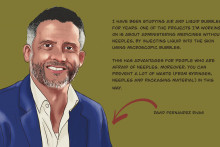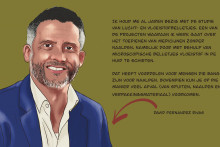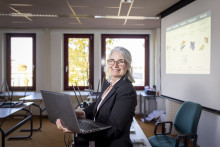In the past couple of weeks, the Educational Reform Programme Desk (programmabureau onderwijsvernieuwing) spoke with teachers, module coordinators and directors of education about the first quarter of TEM. Ramses Wessel, Dean of Educational Reform, on Monday presented the first 'general' results of this evaluation to all directors of education. According to him, most teachers are satisfied with TEM.
However, from the evaluation it became clear that they do experience a high workload. This may be because the first quarter saw a lot of testing. Wessel: "That was intentional though, but teachers have the feeling that they have to continuously provide feedback. Giving students a lot of tests is fine, but we're going to figure out if there really have to be that many. You could also try to keep the tests smaller."
Earlier it became clear from a survey amongst students that first-year students are experiencing a lot of pressure for tests. Half of the students indicated they need more time in order to prepare for their exams. The teachers believe that students are doing more than necessary. This could be the result of teachers not clearly indicating in advance what is expected of the students.
Teachers excited about modules
Many of the TEM teachers are excited about the new educational model. They believe the cooperation between teachers has improved and they are satisfied with the modules. The majority of these modules have been developed entirely from scratch. In only a few educational programmes is the module still made up of 'old' courses that have been given a new look, Wessel is glad to note. According to the teachers, projects have been effectively integrated into the modules.
Better integration of mathematics course
According to Wessel, teachers are also satisfied with the mathematics course. 'The students' results have improved in comparison with last year's results of the same units. The mathematics teachers are also excited: they feel involved with all educational programmes.'
Judging by the teachers' evaluation, the integration of the mathematics course into the modules does require improvement, the Dean of Educational Reform observes. 'This is tricky, because one module team may want a certain mathematical subject to be offered in the second week, while the teachers of another programme only want to start covering it in the fifth week. We are going to try and have mathematics teachers see more of what the module teams are doing, thus enabling the teachers to better gear the contents of the seminars to each educational programme.'


